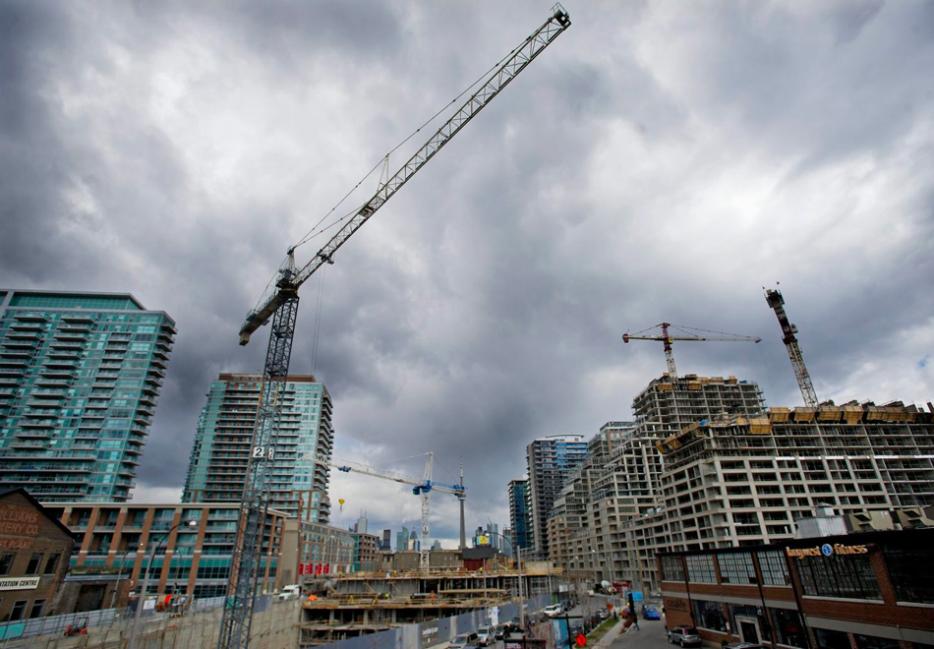When economists and financial analysts start talking about a “Wile E. Coyote moment,” it may be time to start worrying about Canada’s housing markets. Of course, some observers have been worried for some time about the markets getting overheated in the flurry of condo-building across the country. Finance Minister Jim Flaherty has brought in a basket of measures to take the punch bowl away from the party. The question is whether Flaherty is going to achieve what he wanted: The near-mythical “soft landing” in the housing market.
It would be nice if the evidence pointed clearly to one answer, but if you expect that, you probably haven’t been paying attention to the Canadian housing market for the last little while: It’s almost always spitting out data that someone, somewhere, can use to justify their arguments. But let’s take a look at the bleak stuff: Builders aren’t even banking a lot of land for future projects anymore, with residential land investment down 51 percent in Toronto in the first half of 2013, while there’s been a nearly 20 percent drop in new condo starts. The numbers are different in other city markets, but there’s not a lot that’s encouraging.
(Necessary disclaimer: Economists have been predicting the end of the condo market for much of the last decade. They could be wrong, again. Or not.)
Before schadenfreude grips anyone prepared to cheer the end of the condo boom (and in Toronto, there will be many), it’s important to understand that the condo boom has lasted as long as it has because of the broader move back into cities across North America. The end of condo-building isn’t likely to stop that, so instead, we’ll get the worst of both worlds: A slower economy thanks to the loss of construction jobs and rapidly increasing rents as young workers compete even more fiercely for scarce urban space.
This isn’t just a theory: The latest run-up in Toronto’s rents started when condo sales began to dip in mid-2012. People who could otherwise afford new homes are either staying in the rentals they’ve got, or bidding up the price for rentals they want when condos aren’t on the market.
But if the end of condo-building (for now) spells some problems for cities choking on high rents, the answer is pretty simple: We are, after all, talking mostly about the end of cheap credit to buy condos, not an end to the demand to live downtown. If governments want to keep building trades employed and lessen the damage of an economic slowdown, they could always encourage developers to start building rental housing again—something Toronto hasn’t done in large numbers since the 1970s.
Last year the Federation of Canadian Municipalities issued a report about how governments could increase rental stock, but the scale of the problem shouldn’t be underestimated: In Toronto, the only places that are building new rental units are doing so because they’re legally required to do so when they tear down apartment buildings to add new condominiums. In some cases, builders will say even when the land cost is zero—which it can be if you find an existing apartment owner looking to expand—it’s difficult to make a large rental development alluring for banks.
Social activists who hope for new affordable housing may be disappointed by a return of rental construction, if it comes: Developers, after all, can just build luxury rentals where they would have built luxury condos. (Yes, luxury rentals are a thing that existed—and may yet again.) The only consolation is that all the evidence we have says building new rentals for the rich is better for the poor than building nothing at all. Until voters support much larger spending on social housing, those are our only choices.






